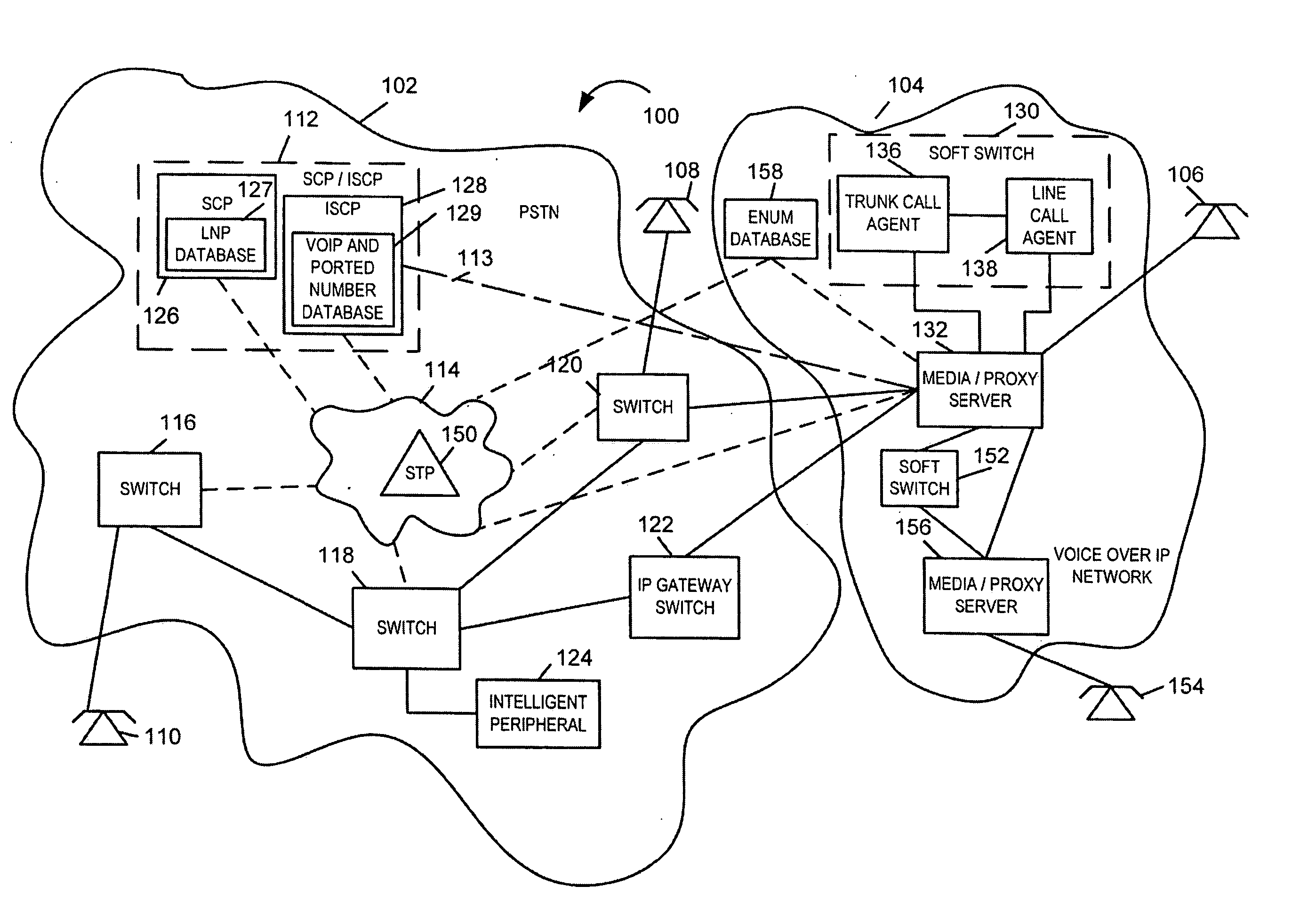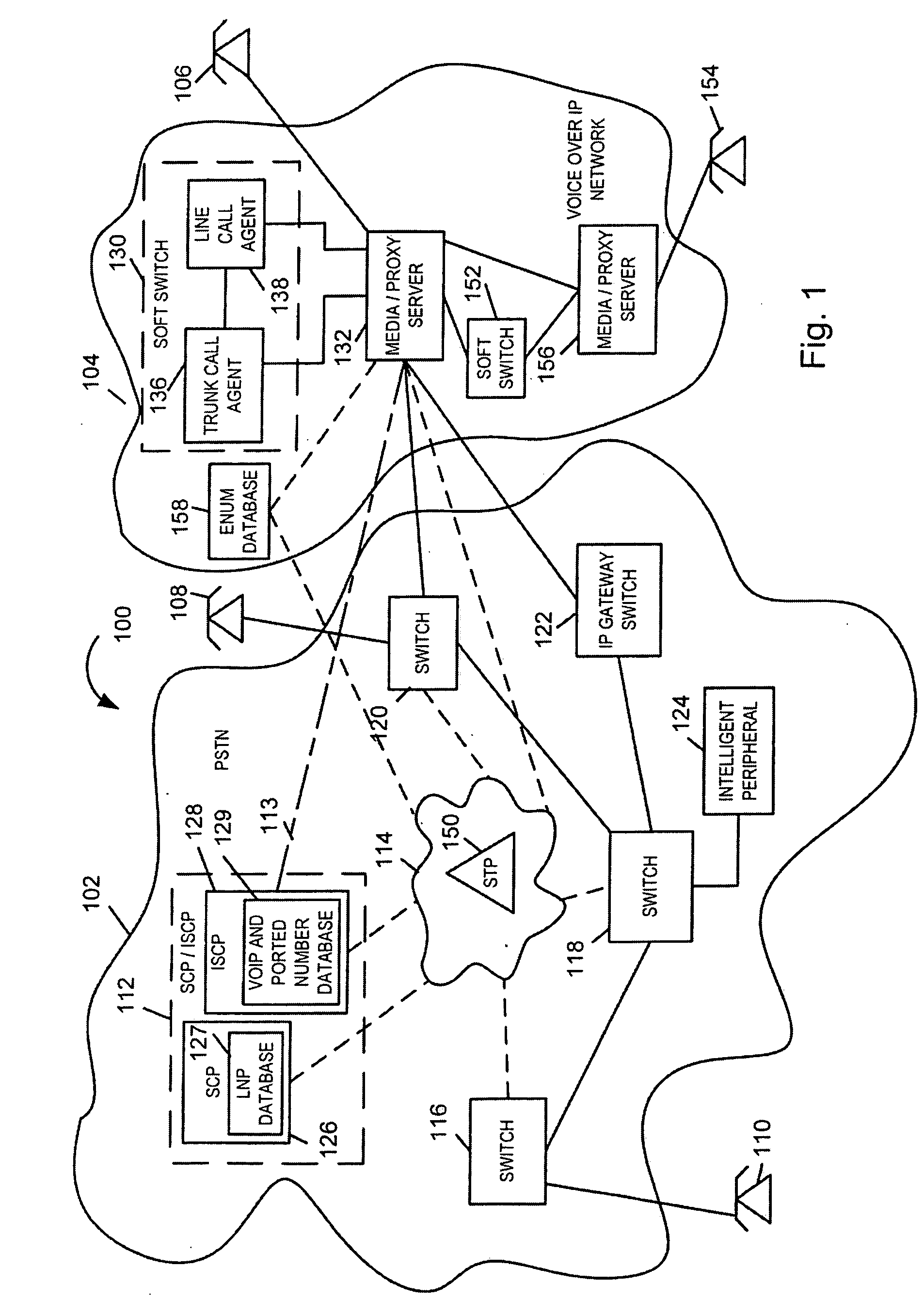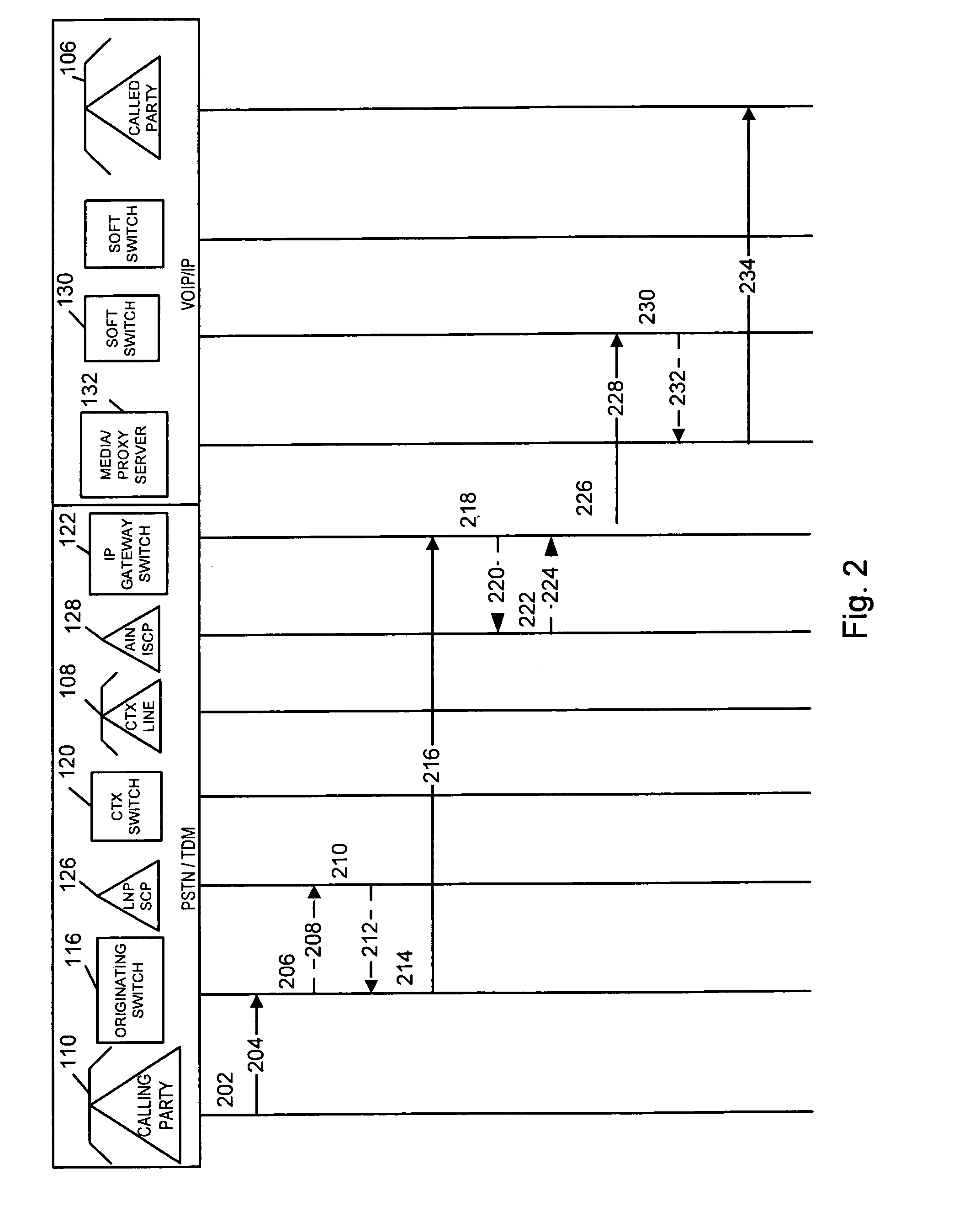Methods and apparatus for transferring from a PSTN to a VOIP telephone network
a telephone network and telephone network technology, applied in the field of methods, can solve the problems of affecting the telephone company, customer satisfaction, and companies, even more so than individuals, and a tendency to be risk adverse when it comes to implementing new technology
- Summary
- Abstract
- Description
- Claims
- Application Information
AI Technical Summary
Benefits of technology
Problems solved by technology
Method used
Image
Examples
Embodiment Construction
[0046] The present invention is directed to methods and apparatus for migrating from the Public Switched Telephone Network (PSTN) to a Voice Over Internet Protocol (VOIP) network, while keeping the transition relatively transparent to end users. Various methods and apparatus of the invention are directed to allowing for a gradual transition of subscribers from the PSTN to VOIP environment, and to minimizing the need to upgrade and / or replace PSTN hardware, e.g., telephone switches, during the transition process.
[0047]FIG. 1 illustrates a communications system 100 implemented in accordance with the present invention. The system 100 comprises a plurality of telephones 106, 108, 110, 154, a PSTN 102, and a VOIP network 104. Telephones 108, 110 are conventional telephones, while telephones 106, 154 are IP (Internet Protocol) phones. End users, e.g., telephone service subscribers, may use any one of the telephones 106, 108, 110, 154 to initiate or receive a call. A telephone service sub...
PUM
 Login to View More
Login to View More Abstract
Description
Claims
Application Information
 Login to View More
Login to View More - R&D
- Intellectual Property
- Life Sciences
- Materials
- Tech Scout
- Unparalleled Data Quality
- Higher Quality Content
- 60% Fewer Hallucinations
Browse by: Latest US Patents, China's latest patents, Technical Efficacy Thesaurus, Application Domain, Technology Topic, Popular Technical Reports.
© 2025 PatSnap. All rights reserved.Legal|Privacy policy|Modern Slavery Act Transparency Statement|Sitemap|About US| Contact US: help@patsnap.com



